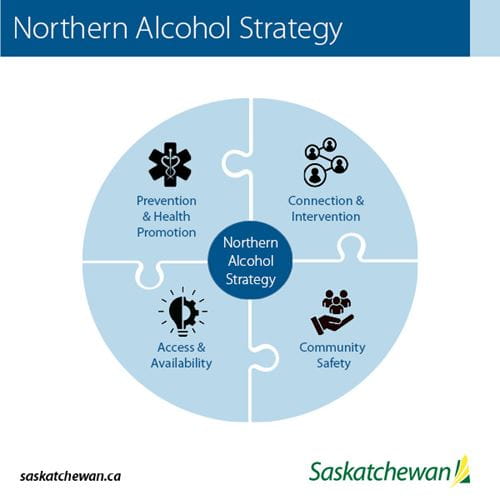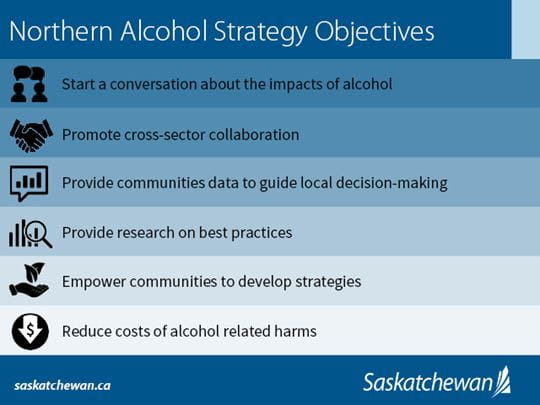The NAS uses a collaborative, public health approach that emphasizes community development and empowerment. The approach acknowledges the unique needs and circumstances of individuals and communities. Alcohol use is addressed on a spectrum ranging from mild to severe. Recognizing the spectrum of alcohol use helps us understand the impacts of different patterns of alcohol consumption. Under the approach it is considered necessary to create interventions and support systems that not only respond to severe alcohol dependence, and also address binge drinking and challenge the normalization of unhealthy alcohol consumption.
The NAS is a multi-strategy approach* that focuses on:
- Prevention and health promotion
- Treatment and care
- Availability and access
- Safer communities
*Adapted from: Canadian Centre on Substance Use and Addiction's Reducing Alcohol-Related Harm in Canada: Toward a Culture of Moderation (2007)
The NAS method acknowledges that the social issues affecting a community's safety and well-being are interconnected; thus, when communities address alcohol related issues, every sector is positively impacted (education, justice, health, business, industry). For this reason, communities are supported to engage with every sector in the planning. Locally or regionally led interagency committees may create a Community Alcohol Management Plan (CAMP) or Community Safety and Well-Being Committee to oversee the work and to design and implement a community action plan.
Communities are encouraged to consider inviting neighbouring communities (municipalities and First Nations) to participate in order to co-ordinate regionally, and to ensure that the people and services that operate across jurisdictions are working collaboratively.



